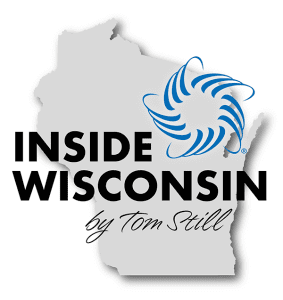
MADISON, Wis. – Elon Musk is a clear winner. Other big names in Silicon Valley may be losers. Cryptocurrency is a stock market winner so far. Fans of anti-trust legislation are likely losers. TikTok may yet emerge a winner. Pharmaceutical companies may be losers… or winners. The fight to curb inflation … well, economists are split on what happens next, especially if tariffs on foreign goods cause prices to rise sharply.
Those are early observations from a national perspective now that former President Trump will once again become President Trump. Drawing on campaign assertions, very public alliances and some rekindled policy fights, Trump will take office in January eager to remake an economy that many voters thought was not working for them.
Still, other important issues may rise to prominence in Congress – depending on how the new White House views them, and how the tight partisan margins in the 119th Congress play out.
Musk of Tesla, SpaceX and X social media fame was a vocal, generous and highly visible supporter of Trump, and his companies will almost certainly benefit. Tech executives from other Silicon Valley giants may be less in favor – although Bitcoin and other crypto companies are seeing both a market and political surge due to their campaign activities.
Because Trump has rethought his previous aversion to TikTok, the Chinese company that owns it – ByteDance – may not be forced to sell its U.S. interests. The biotech industry is understandably jittery that Trump has vowed to let Robert F. Kennedy Jr. “go wild on health,” but likely relieved he wants to change leadership at the Food and Drug Administration.
With inflation, economists of many philosophical stripes are worried that Trump’s plans to impose much higher tariffs will raise prices – just as they subsiding and the Federal Reserve Board is on a track for more interest rate cuts.
Other issues that may surface at the federal level:
Research and development tax breaks: For nearly 70 years, U.S. businesses were allowed to deduct 100% of R&D expenses in the year those expenses were incurred. The result was unprecedented American innovation. That began to change in 2017 with a tax law change and, starting in 2022, businesses were required to amortize R&D investments over five to 15 years, The House of Representatives voted overwhelmingly in early 2024 to go back to the 100%, one-year rule, but the Senate failed to pass it. Look for the bill to re-emerge in 2025.
Deducting more startup business costs: Under current law, new business owners can deduct up to $5,000 in startup costs, such as spending tied to advertising, market surveys, insurance costs and more, in the year they start their business. Up to $50,000 in such as costs can be amortized over 15 years. There are proposals to raise the $5,000 first-year deduction to $50,000, and the 15-year amortization to $150,000 while adding some deductible expenses. Proponents say the change would encourage more people to start businesses; others question whether the high mortality rate of startups makes a 10-fold, first-year deduction jump risky.
Patent law ‘march-in” rights: Some say the federal government should be allowed to appropriate products patented by universities and developed with private money if the underlying research received any federal funding and if the products are deemed unreasonably priced. In patent law-speak, that’s called “march-in” rights. It would be a major departure from the bipartisan 1980 Bayh-Dole Act, which was silent on what constitutes “reasonable” price and which has been credited with spurring innovation at major universities nationwide.
Pursuing regional solutions to national challenges: The National Science Foundation’s “Regional Innovation Engines” program is fostering innovation in places best-equipped to show results that can be replicated elsewhere. One Wisconsin program has made the cut with a proposal tied to regenerative agriculture. Artificial intelligence technology is more omnipresent by the day, and Trump seems ready to reduce government’s role in its regulation for fear of stifling innovation. A Wisconsin proposal to the National Institutes of Standards and Technology would focus on manufacturing and AI, which could serve as a demonstration to others.
For the most part, the Trump 2 agenda remains in motion with the election dust barely settled. If past is precursor, however, economic policy surprises and twists may become the norm.
Still is president of the Wisconsin Technology Council. He can be reached at [email protected].

